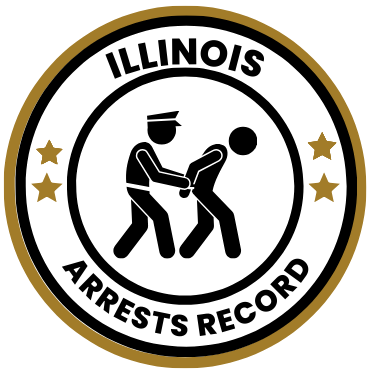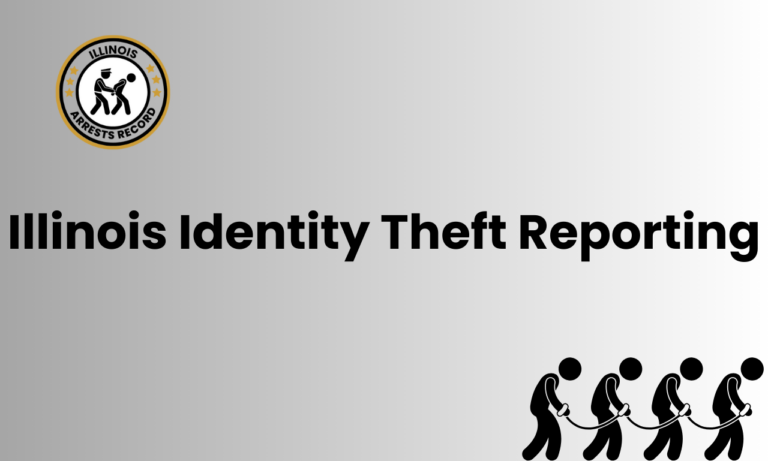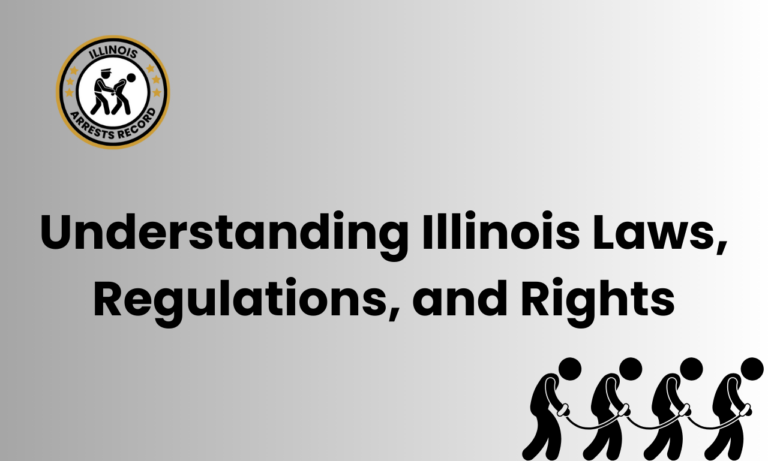Illinois Arrest Warrants Process
Understanding the process of Illinois arrest warrants is essential for anyone who wants to navigate the legal system with confidence. Whether you’re a resident of Illinois or just curious about how the state handles arrest warrants, this informative guide will provide you with all the necessary information.
From the initial issuance of a warrant to the steps involved in executing it, we will delve into the intricacies of the Illinois arrest warrant process. We will explore the legal requirements, the role of law enforcement agencies, and the rights of individuals subject to arrest warrants. By the end of this guide, you will have a comprehensive understanding of how the Illinois arrest warrant process works, empowering you to make informed decisions and protect your rights.
The Initial Issuance of an Illinois Arrest Warrant
When it comes to the Illinois arrest warrant process, it all starts with the issuance of the warrant. This crucial step is undertaken by a judge or a magistrate who carefully reviews the evidence presented by law enforcement agencies. The judge must find probable cause to believe that a crime has been committed and that the person named in the warrant is responsible for that crime.
Once the judge grants the warrant, it becomes an official document authorizing law enforcement officers to arrest the individual in question. It’s important to note that arrest warrants in Illinois are not issued lightly. The evidence must be substantial enough to convince a judge that a crime has likely occurred and that the named individual is the likely perpetrator.
Role of Law Enforcement Agencies in Executing Arrest Warrants
With an arrest warrant in hand, law enforcement agencies take on the responsibility of executing the warrant and apprehending the individual named in it. This task typically falls to police officers, sheriff’s deputies, or other authorized officials.
Law enforcement agencies must follow specific procedures outlined by Illinois law when executing arrest warrants. They are required to inform the individual of the warrant’s existence and provide them with a copy of the warrant. This ensures that individuals are aware of the charges against them and their rights in the arrest process.
Understanding the Legal Requirements for an Arrest Warrant
Illinois law sets forth certain requirements that must be met for a warrant to be valid. These requirements are in place to protect individuals from unjust arrest and to ensure that law enforcement agencies act within the bounds of the law.
One of the key requirements is that the warrant must be supported by an affidavit, which is a sworn statement by a law enforcement officer or another credible witness. The affidavit must provide detailed information about the alleged crime and the individual’s involvement in it.
Protecting Your Rights when Subject to an Arrest Warrant
Being subject to an arrest warrant can be a stressful and overwhelming experience. However, it’s crucial to remember that you have rights that must be respected throughout the process.
If you find yourself facing an arrest warrant, it’s essential to consult with an experienced criminal defense attorney as soon as possible. They can help you understand your rights, guide you through the legal process, and advocate for your best interests.
FAQ’s
What is an arrest warrant?
An arrest warrant is a legal document issued by a court authorizing law enforcement to arrest a person suspected of committing a crime. It signifies that there is probable cause to believe the individual has engaged in unlawful activity, providing the basis for their apprehension.
How is an arrest warrant obtained?
To obtain an arrest warrant, law enforcement or a prosecutor must present evidence to a judge demonstrating probable cause that a specific individual has committed a crime. If the judge finds the evidence compelling, they issue the warrant, granting authorities the legal right to arrest the person named in the warrant.
What information is included in an arrest warrant?
An arrest warrant typically includes details such as the name of the person to be arrested, the alleged criminal offense, and any supporting evidence provided to establish probable cause. It also specifies the issuing court and may outline the conditions under which the arrest should take place.
Can an arrest warrant be served at any time?
What happens after an arrest warrant is executed?
After an arrest warrant is executed, the individual named in the warrant is taken into custody by law enforcement officers. They will be informed of the charges against them and may be held in jail until their court appearance.
Conclusion
By gaining a comprehensive understanding of the Illinois arrest warrant process, you are better equipped to navigate the legal system with confidence. From the initial issuance of a warrant to the steps involved in executing it, this guide has provided you with the necessary information.
Remember, the Illinois arrest warrant process is designed to ensure that law enforcement agencies act within the bounds of the law while protecting the rights of individuals. By staying informed, you can make informed decisions, protect your rights, and advocate for a fair and just resolution to any legal matters you may face.







